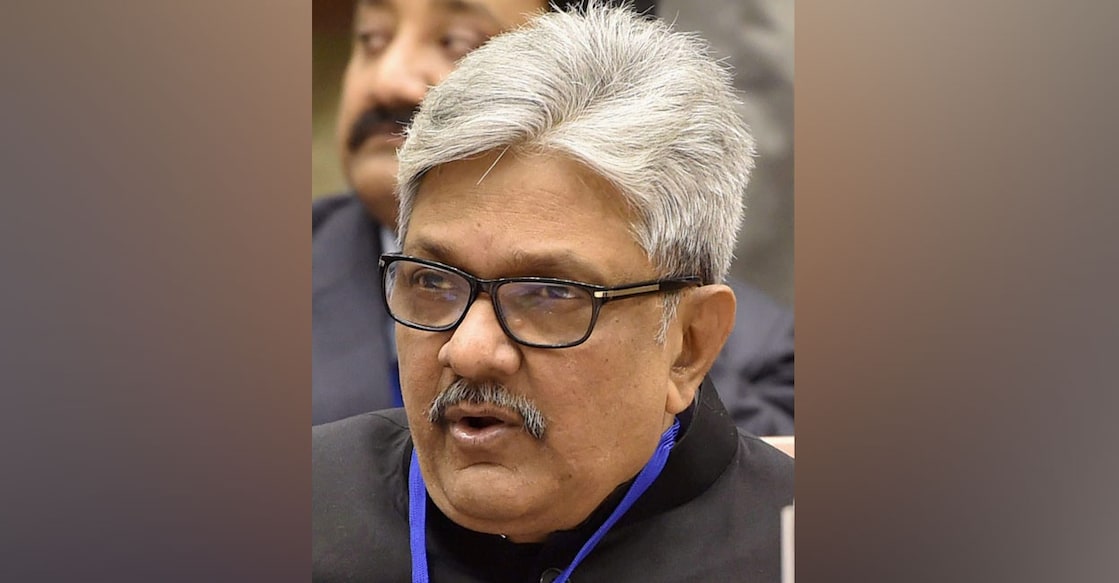Manipur violence has given a bad name to India's secularism: Retired SC judge K M Joseph

Mail This Article
The ongoing ethnic violence in Manipur has given a bad name to India's secularism, said Justice K M Joseph, former Judge of the Supreme Court.
Addressing a lecture on 'Concept of Secularism Under Indian Constitution' on Thursday, Justice Joseph said that if any government tried to 'remove secularism' it would be sounding the death knell of democracy in India.
The Keralite, who retired from the apex court in June 2023, cited the Constitution of India to remind the politicians they should not endorse any religion and not use it as a tool for political gains during an election. Prime Minister Narendra Modi recently led the consecration ceremony of the Ram Temple at Ayodhya.
Threats to secularism
Toward the end of his two-hour lecture, Justice Joseph cited the violence in Manipur that has claimed over 175 lives and displaced nearly 70,000 since May 2023. "The right to live is the most important thing in life. If you do not have a secular country... for example, take the case of Manipur.
"How many lives have been lost, and how many places of religious worship, more than 200, have been destroyed? Is it based on persons warring belonging to two different religions or different tribes? Be it either, it does not bring secularism a good name in India. The word goes around that we do not have a country that is dedicated to secularism, that we are not strong enough," Justice Joseph said.

Unified press is essential
Justice Joseph referred to the importance of the media in reporting facts. "Does the media stand up in one voice? The role of the media is very very important. It is not to sing hosannas to the established powers. The fourth estate is a very very powerful, potent instrument, particularly the visual media. If they stand one against the government, on a matter of this nature, you may take it that no government will be able to withstand a unified press or media, provided they have in them the fire of the constitution. The fire from the pyre of the rights of the citizens who have been killed, places of worship which have been destroyed, within any part of India."
Do not take sides
On multiple occasions, Justice Joseph reminded politicians of the need to maintain neutrality when it comes to backing religions. "Religion has no place in an election place. You cannot disenchant and enchant the electorate with an appeal based on religion. It is a secular practice which is central to our democratic process.
"The whole idea of secularism is that religion is your private affair, keep it private. It may have relevance in a public sphere, to the extent it has, make use of it, but outside that the state must maintain complete neutrality and take its hands off."

Justice Joseph reiterated that "if a minister, however high-ranking he may be, whoever he may be, if he by word of mouth or actions, gives the impression that he is siding with a particular religion, then the flag of secularism is down, it is buried at least temporarily". He repeated the remark while concluding the speech. "No functionary, no representative, no minister, whoever he is, can endorse any religion, can take sides in a fight between religions."
What is the way forward?
Justice Joseph reiterated that secularism was the facet of equality and it meant treating all religions equally. But what do citizens do when secularism is under threat? "Article 51(a) of the Constitution says every citizen is bound to abide by the Constitution. So the citizenry must rise, an informed citizenry. There is no point lying in bed and saying I'll not protest, I'll not do anything, let the state do whatever it wants. If you mount all criticism and display complete impotence, when it comes to your own actions what is it that you are contributing?
"If secularism is going to be removed by any government, the fact is that it will sound the death knell of democracy. Without secularism, in a country with so many religions, so many languages, dialects, and culture, which is what Article 29(1) importantly speaks of, we are in danger of losing the very ethos of our country."

